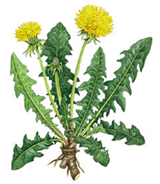
Devils Claw
Introduction
This fact sheet provides basic information about Devil's Claw. Devil's claw grows naturally in the Kalahari desert and Namibian steppes of southwest Africa. The secondary roots are used in decoctions and teas. Devil's claw has been used by native Africans as a folk remedy for diseases ranging from liver and kidney disorders to allergies, headaches and, most commonly, rheumatisms. This drug, however, is more widely used in South Africa, especially by Bushmen, Hottentots and Bantu. Devil's claw is marketed in Canada and Europe as a home remedy for the relief of arthritic disease.
Common Names
Devils' Claw, Grapple Plant
Latin Names
Harpagophytum procumbens
What It Is Used For
- Devil's claw is a folk remedy used for an extensive range of diseases, including arthritis and rheumatism. Research suggests it may be useful as a hypotensive, anti-arrhythmic, anti-inflammatory, and analgesic.
How It Is Used
Devil's claw has been studied for low back pain, muscle pain, and osteoarthritis using daily doses of crude tuber up to 9 g daily, 1 to 3 g of extract, and 50 to 100 mg of harpagoside.
What the Science Says
- The results of a German clinical study indicate that devil's claw has anti-inflammatory activity comparable to that of phenylbutazone. Analgesia was observed, along with a reduction in abnormally high uric acid and cholesterol levels.
Side Effects and Cautions
- Devil's claw may interfere with the action of Ticlopidine and Warfarin, and patients should consult with a physician before combining Devil's claw with these medications.
- Devil's Claw promotes the secretion of stomach acid, leading to difficulties in those with peptic ulcers, gastritis or excess stomach acid. Care should also be taken for individuals with gallstones.
Sources







